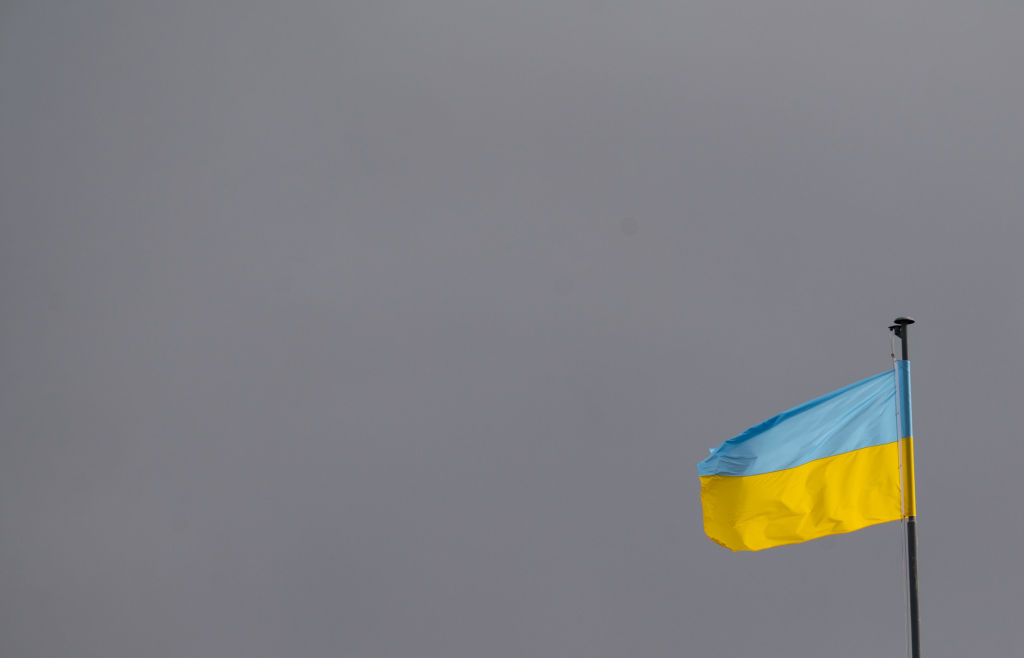
- HFPA
HFPA Supports Committee to Protect Journalists in Ukraine
The HFPA has been a proud supporter of the Committee to Protect Journalists (CPJ) since 2017 and has granted them almost $2 million for their efforts to defend press freedom worldwide and to protect journalists and their right to report the news freely and without fear.
The HFPA Board of Directors today announced an additional $75,000 to help their efforts in Ukraine.
CPJ has placed a dedicated team solely focused on helping their Emergency Response Team to aid reporters, freelancers, and media support personnel, with information on safety and security in conflict zones, such as how to protect themselves in different scenarios, and how to access assistance when required.
They work to prevent deaths, detentions, kidnappings, and other such violations through information-sharing and practical guidance. They also provide on-the-ground advocacy and rapid response support to journalists who are injured, imprisoned or forced to flee.
As of this writing, journalist Yevhenii Sakun, a camera operator for the TV station LIVE, was one of 5 people killed as a television tower in Kyiv was fired on by the Russian army on March 1.
“We are deeply saddened by the death of Ukrainian journalist Yevhenii Sakun, who was killed in a reckless Russian attack on civilian infrastructure in Kyiv,” said Gulnoza Said, CPJ’s Europe and Central Asia program coordinator. “All parties to the conflict must protect local and international journalists and stop targeting media facilities and equipment.”
CPJ also noted that two Danish journalists were shot at and injured in eastern Ukraine near the city of Okhtyrka. Stefan Weichert and Emil Filtenborg Mikkelsen work for Ekstra Bladet and have lived in Ukraine for two years.
CPJ is also documenting all the press suppression incidents in Russia as President Vladimir Putin targets the independent outlets. According to their website, cpj.com, at least five journalists have been charged and dozens more detained for covering anti-war protests in Russia.
Russia’s censor, Roskomnadzor, has demanded that media organizations only publish official government reports about the war; they will be shut down if they don’t comply. CPJ reports: “In the same statement, Roskomnadzor announced an administrative investigation into at least ten independent media outlets for their alleged mischaracterization of Russia’s invasion of Ukraine. The investigations could result in fines up to five million rubles, currently the equivalent of US $48,000.”
“Russian authorities should stop employing draconian tactics against independent media as a way to control the narrative around the country’s invasion of Ukraine,” said CPJ Program Director Carlos Martinez de la Serna, in New York. “It is essential that the few remaining independent voices in Russia do not become a casualty in this conflict.”
Radio station Echo of Moscow, television station Dozhd TV, independent news websites InoSMI, Medizona, New Times, Free Press, Novaya Gazeta, The Journalist, Linizdat, and the U.S. Congress-funded Radio Free Europe/Radio Liberty website Krym.Realii are all under investigation by Putin’s government.
From the Washington Post’s editorial board on March 2, 2022: “On Tuesday evening, the Russian censor, Roskomnadzor, acting at the orders of the Russian prosecutor-general’s office, blocked the two largest remaining independent broadcasters in the country: radio station Echo of Moscow and Dozhd television.
“The prosecutor claimed they disseminated information that ‘calls for extremist activities, violence, and premeditated false information about the Russian military personnel’s special operation’ in Ukraine. But what it really means is that Mr. Putin’s regime has criminalized the truth, and does not want the Russians to know it.”
It is reported that Dozhd staff, including their chief editor, have fled the country.
CPJ is also working to confirm reports that 31 other reporters have been taken into custody so that they can assist them to confront their charges.
On the eastern border of Poland, CPJ is monitoring the growing humanitarian crisis, including the press freedom incidents, reporting that Polish authorities have arrested Spanish reporter Pablo Gonzalez on March 1 in Rzeszow, where he was covering the Ukrainian refugee exodus for his newspaper Publico.
“Polish authorities must immediately release Spanish freelance reporter Pablo González and allow him to report freely,” said Attila Mong, CPJ’s Europe representative. “Authorities should ensure that reporters can cover refugee movements and other vital stories of public interest without fear of prosecution, detention, or harassment.”
According to CPJ’s Director of Development, John Weis, “CPJ has added three more members to our International Program Network this week to support the work around the war: a Ukrainian consultant, a Russia/Belarus correspondent, and an Eastern Poland consultant. They will join a team with two senior researchers/PCs (Gulnoza Said and Katherine Jacobson), Attila Mong (EU Representative), and Anna Brakha (Europe/Central Asia correspondent).
“All except Attila speak Russian, so we’re in a good position to document local incidents. Carlos Martinez de la Cerna, our program director, is also working almost full time on Ukraine as well.”

